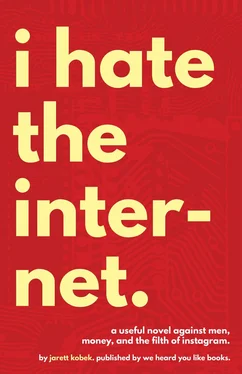Like any formalized system of control, sports were hugely contentious. Sports , like every formalized system of control, were about money.
Typically the men who paid other men to throw balls around would find their employees amongst the poor and ill-educated, as the poor and ill-educated were more likely to sign bad contracts. This was also the organizing principle of the early comic book industry, which preyed on Jewish men who lived in ghettos.
For the sake of both clarity and a lack of future headaches, a distinction should be made between being poor and ill-educated and being stupid.
Anyone could be stupid . Most people were. Stupidity wasn’t the root cause of signing bad contracts.
The poor and ill-educated signed bad contracts because they lacked a social background which educated them in both contract law and its implication for one’s future. The poor’s lack of understanding made them attractive targets for exploitation, which was the organizing principle of American life.
In theory, Twitter made its money by placing the tweets of its users alongside tweets which were paid for by advertisers. So the tweets about your sister’s salad, about Kobe Bryant, about Hollywood would appear alongside tweets about the new Ford F-150.
The Ford F-150 was a truck. A truck was an over-sized automobile .
Automobiles were mechanized vehicles which transported human beings from one point to another while destroying the atmosphere and the planet.
One of the curious aspects of the Twenty-First Century was the great delusion amongst many people, particularly in the San Francisco Bay Area, that freedom of speech and freedom of expression were best exercised on technological platforms owned by corporations dedicated to making as much money as possible.
People from all across the political spectrum loved Twitter. Instant activism with an instant response. There was the sensation that things were happening, that people were listening.
In fact, all of the people who exercised freedom of speech and freedom of expression on Twitter were doing nothing more and nothing less than creating content that they did not own for a corporation in which they had no stake.
In effect, they were working-for-hire like Jack Kirby. The only difference being that Marvel, like, you know, actually paid Jack Kirby before he was screwed. Twitter didn’t pay its creators.
The only purpose of tweeting was the creation of new opportunities for advertisements. The only function of exercising freedom of speech and freedom of expression on Twitter was to make money for the people who had founded and invested in Twitter.
The founders of Twitter were named Jack Dorsey, Biz Stone, Noah Glass and Evan Williams. There was no eumelanin in the basale strata of their epidermises.
So that was radical activism in 2013. Hosted by a service owned by white dudes which displayed advertisements for Coca-Cola and Pepsi.
Adeline had offended women in tech. She had offended advocates of free speech. She had offended people who believed that copyright was copywrong. She had offended people on the Left. She had offended people on the Right.
There was anger about her trivialization of the travails of women in the tech sector. There was anger on behalf of the victims of the Triangle Shirtwaist Fire of 1911. There was anger on behalf of the Arabs, still locked in political struggle and still not liberated by Twitter or Facebook. There was anger on behalf of the US Constitution, an inanimate document without feelings that had doomed millions to slavery. There was anger on behalf of the victims of incest and sexualized violence.
She’d only spoken for fifty minutes.
She had email from friends, asking if she’d seen Twitter. She had email from journalists, asking for an interview. She had emails linking to articles that had been written about her epic rant. She had emails linking to other articles rebutting the previous articles.
Adeline’s real error was criticizing both Beyoncé and Rihanna and their fans’ relationship to their achievements.
Beyoncé and Rihanna were pop stars.
Pop stars were musical performers whose celebrity had exploded to the point where they could be identified by single words.
You could say BEYONCÉ or RIHANNA to almost anyone anywhere in the industrialized world and it would conjure a vague neurological image of either Beyoncé or Rihanna.
Their songs were about the same six subjects of all songs by all pop stars: love, celebrity, fucking, heartbreak, money and buying ugly shit.
It was the Twenty-First Century.
It was the Internet.
Fame was everything.
Traditional money had been debased by mass production. Traditional money had ceased to be about an exchange of humiliation for food and shelter. Traditional money had become the equivalent of a fantasy world in which different hunks of vampiric plastic made emphatic arguments about why they should cross the threshold of your home.
There was nothing left to buy.
Fame was everything because traditional money had failed. Fame was everything because fame was the world’s last valid currency.
Beyoncé and Rihanna were part of a popular entertainment industry which deluged people with images of grotesque success.
The unspoken ideology of popular entertainment was that its customers could end up as famous as the performers. They only needed to try hard enough and believe in their dreams.
Like all pop stars, Beyoncé and Rihanna existed off the illusion that their fame was a shared experience with their fans. Their fans weren’t consumers. Their fans were fellow travelers on a journey through life.
In 2013, this connection between the famous and their fans was fostered on Twitter. Beyoncé and Rihanna were tweeting. Their millions of fans were tweeting back. They too could achieve their dreams.
Of course, neither Beyoncé nor Rihanna used Twitter. They had assistants and handlers who packaged their tweets for maximum profit and exposure.
They were famous in a time when fame was the world’s last currency. Fame could purchase the illusion of being an Internet user without the purchaser ever touching a mobile phone or a computer.
That was a difference between the rich and the poor.
The poor were doomed to the Internet, which was a wonderful resource for watching shitty television, experiencing angst about other people’s salaries, and casting doubt on key tenets of Mormonism and Scientology.
If Beyoncé or Rihanna were asked about how to be like them and gave an honest answer, it would have sounded like this: “You can’t. You won’t. You are nothing like me. I am a powerful mixture of untamed ambition, early childhood trauma and genetic mystery. I am a portal in the vacuum of space. The formula for my creation is impossible to replicate. The One True God made me and will never make the like again. You are nothing like me.”
It is worth noting that both Beyoncé and Rihanna had loads of eumelanin in the strata basale of their epidermises. The American media loved showing Black people who were successful at the performing arts and sports.
The American media almost never showed Black people achieving success through education and professionalism. These were not interesting narratives.
Back when she’d been in Kevin Killian’s class, one of the students had interrupted Adeline.
“But, like, don’t you like, think that, you know, Facebook and Twitter can serve, like, a role in the pursuit of, like, social progress?” asked the student.
“Pray tell, sweet flower, what is social progress?” asked Adeline. “Social progress might have had meaning twenty years ago when I was but a young thing, but these days it’s become the product of corporations. But what do you people know, anyway? You’re a lost generation. Even your drugs are corporate. You spend your lives pretending as if Beyoncé and Rihanna possess some inherent meaning and act as if their every professional success, which only occur because of your money and your attention, is a strike forward for women everywhere. Which is sheer nonsense and poppycock, oh my wretches.”
Читать дальше












